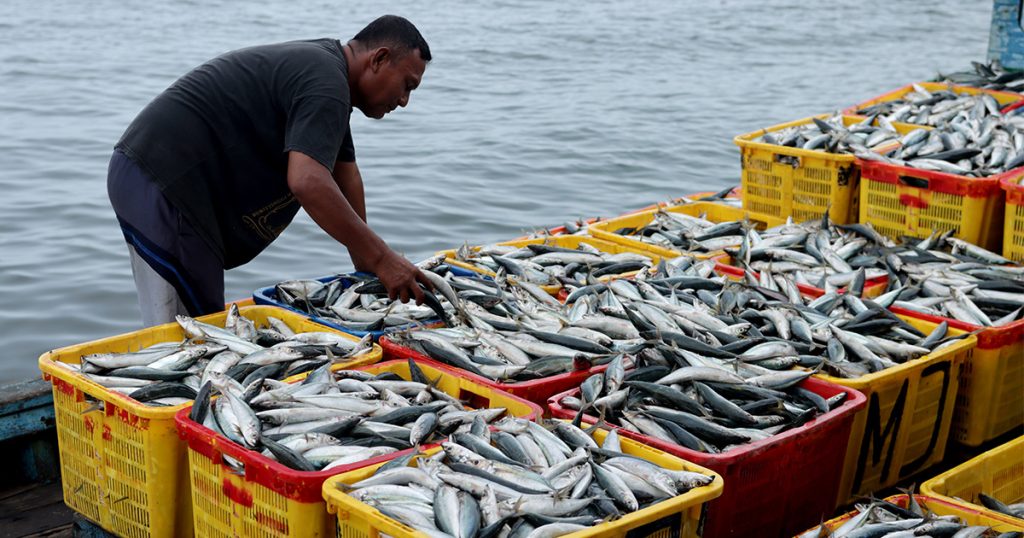The Nigerian fishing industry is grappling with significant financial losses, estimated at $70 million annually, due to a confluence of factors primarily stemming from outdated fishing regulations. These antiquated laws, enacted in the 1980s, have failed to keep pace with the evolving dynamics of the sector, leaving it vulnerable to unreported, illegal, and unregulated fishing activities. This outdated legal framework lacks the necessary provisions to address contemporary challenges, rendering it ineffective in curbing illicit practices and safeguarding Nigeria’s valuable fish stocks. The Fisheries Cooperative Federation of Nigeria Limited (FCFNL) has highlighted the urgent need for comprehensive reform to modernize these laws and bring them in line with current realities. This includes strengthening enforcement mechanisms and increasing funding for the Federal Department of Fisheries, the agency responsible for regulating the sector. The lack of adequate funding hampers the department’s ability to effectively monitor and control fishing activities, creating an environment conducive to illegal practices.
The outdated nature of the fishing laws contributes significantly to the problem of unregulated fishing. These laws do not address the complexities of modern fishing practices, leaving loopholes that are exploited by those engaging in illegal activities. This lack of clear and enforceable regulations makes it difficult to hold perpetrators accountable, further exacerbating the problem. The FCFNL emphasizes that the current laws are inadequate to address the present-day challenges facing the Nigerian fishing industry and calls for a comprehensive overhaul to ensure the sustainability of the sector. The existing legal framework does not provide sufficient deterrents to illegal fishing, nor does it adequately address the issues of foreign encroachment and the depletion of fish stocks. Without robust and up-to-date regulations, the Nigerian fishing industry will continue to haemorrhage revenue and face the long-term consequences of unsustainable fishing practices.
Compounding the issue of outdated laws is the problem of underfunding within the Federal Department of Fisheries. This lack of financial resources severely limits the department’s capacity to effectively enforce regulations and monitor fishing activities, creating a breeding ground for illegal and unreported fishing. The FCFNL argues that increased funding is crucial to empower the department to carry out its mandate effectively. This includes providing the necessary resources for surveillance, monitoring, and enforcement of regulations. Without adequate funding, the department is unable to effectively police the vast expanse of Nigerian waters, leaving it vulnerable to exploitation by illegal operators, both domestic and foreign. This underfunding not only undermines the department’s ability to protect fish stocks but also contributes to the loss of revenue that could be generated through proper licensing and regulation of the fishing industry.
Corruption further exacerbates the challenges facing the Nigerian fishing sector. The lack of transparency and accountability within the system creates opportunities for individuals to exploit the country’s fish resources for personal gain. This corruption takes various forms, including bribery, extortion, and collusion between officials and illegal operators. The FCFNL stresses the need to address this issue through stricter enforcement of regulations, enhanced transparency in licensing and permit processes, and the implementation of anti-corruption measures within the Federal Department of Fisheries. The pervasiveness of corruption undermines the effectiveness of existing regulations and contributes to the depletion of fish stocks, further jeopardizing the sustainability of the fishing industry. Addressing this issue requires a multi-pronged approach involving both legislative and administrative reforms.
The encroachment of foreign trawlers into Nigerian waters is another significant concern. The outdated laws and weak enforcement mechanisms make it difficult to prevent foreign vessels from illegally fishing in Nigerian waters, depleting fish stocks and undermining the livelihoods of local fishermen. The FCFNL points out that foreign trawlers often use sophisticated equipment and techniques that allow them to catch large quantities of fish, exacerbating the problem of overfishing. This encroachment not only poses a threat to the sustainability of Nigerian fish stocks but also represents a loss of potential revenue for the country. Strengthening surveillance and enforcement capabilities is crucial to deterring foreign trawlers and protecting Nigeria’s maritime resources.
To address these multifaceted challenges, the FCFNL advocates for comprehensive reform of the fishing sector. This includes updating the outdated fishing laws, increasing funding for the Federal Department of Fisheries, tackling corruption, and strengthening enforcement mechanisms to prevent illegal fishing and the encroachment of foreign trawlers. The FCFNL also emphasizes the importance of capacity building within the fishing industry. The organization is developing training programmes for its members to enhance their understanding of sustainable fishing practices and regulations. These training programmes aim to equip fishermen with the knowledge and skills necessary to operate within the legal framework and contribute to the long-term sustainability of the sector. By investing in capacity building, the FCFNL seeks to empower local fishermen and create a more responsible and sustainable fishing industry in Nigeria. Ultimately, the goal is to ensure the long-term viability of the Nigerian fishing industry and safeguard the country’s valuable marine resources for future generations.


